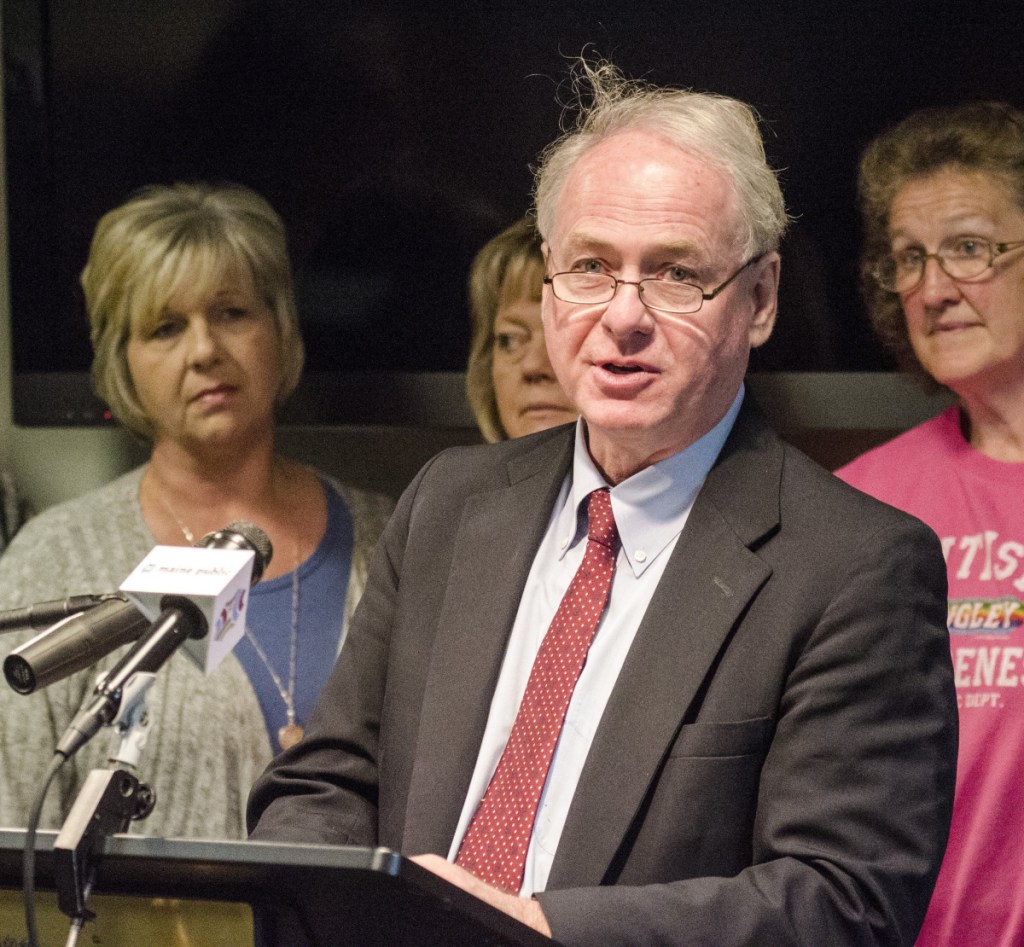Maine has about the same population as San Diego, California, but ours is dispersed over 2,700 square miles. We are the country’s oldest state, with every high school graduation class smaller than the one that came before it. And it’s a poor state, with family income below the national average.
These factors add up to some serious challenges for the state’s higher education system. You can’t solve these problems — you can only hope to make progress. By that standard, University of Maine System Chancellor James Page’s seven-year administration has been an impressive success.
Page, who announced his retirement Wednesday effective at the end of the school year, came to a system of seven independent institutions that were struggling with declining enrollments, declining state appropriations and wasteful competition between campuses.
FINANCIAL STABILITY
Under his guidance, the system was able to right its balance sheet and stabilize enrollment, even growing it on some campuses. He worked out a deal with the state to keep funding level in exchange for a tuition freeze that lasted eight years.
But the most impressive achievement was the package of reforms known as “One University,” which found ways to eliminate redundancies and consolidate services while avoiding the political land mines that ended previous efforts. The One University concept not only saved money but also increased opportunity for students by making it easier for them to take classes at more than one campus.
These goals might sound obvious, but accomplishing them was not easy.
Page is a Caribou native and a graduate of the University of Maine at Fort Kent, so he understood the value of the system’s smaller campuses. Instead of proposing to close some of them, he was able to find savings by consolidating back office functions like human resources for the whole system.
There have also been academic consolidations. The two Aroostook County campuses are joining forces on a nursing program. The University of Maine at Machias became a regional campus of the system’s Orono flagship, lowering administrative costs.
CHALLENGES AHEAD
These are positive steps, but they don’t make Maine’s demographic challenges disappear. There are still many years of work left to do, and Page decided that this would be a good time for him to step aside and let another leader take the helm.
The university system will need go even further to adapt to the needs of nontraditional-age students: students who, as a group, are older, who may have jobs and families and can’t drop everything to attend four years of college. They need different kinds of advising as they piece together a degree over multiple campuses, and they may need intermediate certifications and qualifications for coursework completed that is short of a degree.
The university system is Maine’s most important economic development tool. It not only qualifies people for better jobs but also builds the research and development foundation for the industries that will replace the jobs lost in fisheries and forest products.
Page has set the system on the right course to meet these challenges, and leaves the system in better shape than he found it.
Send questions/comments to the editors.



Comments are no longer available on this story